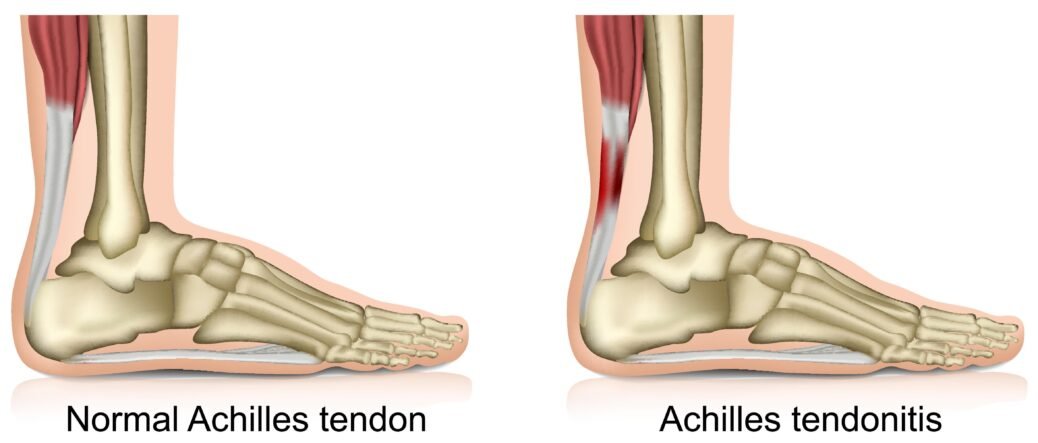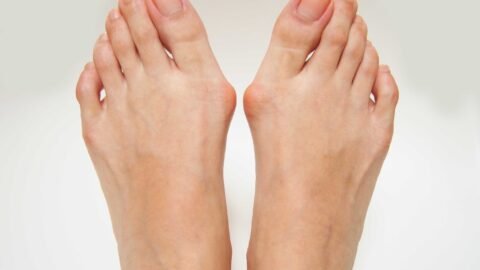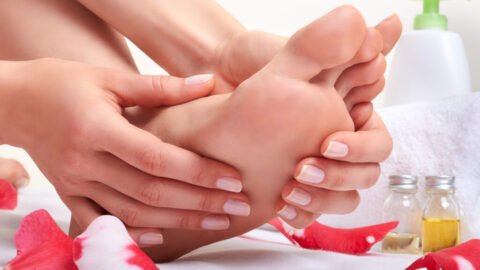Best Nursing Shoes for Achilles Tendonitis
Achilles tendonitis is a common condition among nurses due to the extensive time they spend on their feet. Appropriate footwear is essential for those with this condition to alleviate pain and prevent further injury. When looking for the best nursing shoes for Achilles tendonitis, it’s important to consider features such as heel cushioning, arch support, and a design that reduces strain on the tendon.
The ideal nursing shoe for someone with Achilles tendonitis should provide ample support to the foot’s natural arch while offering sufficient heel elevation to minimize stress on the Achilles tendon. In addition to these features, a good nursing shoe should also be durable, slip-resistant, and comfortable for long shifts.
Selecting the right shoe can make a significant difference in managing symptoms and improving mobility for nurses with Achilles tendonitis. It’s also advisable for individuals to consult with a healthcare professional to ensure their footwear choices complement other treatment strategies they may be pursuing.
Understanding Achilles Tendonitis

Achilles tendonitis is an overuse injury characterized by inflammation of the Achilles tendon, the band of tissue connecting calf muscles to the heel bone. It is essential to recognize the causes, symptoms, and the specific impact this condition has on nurses.
Causes of Achilles Tendonitis
Achilles tendonitis typically results from repetitive stress to the tendon. This stress often comes from:
- Overtraining or a sudden increase in intensity of exercise or activity.
- Mechanical issues like flat feet which increase strain on the tendon.
- Improper footwear, which fails to support the arch or cushion the heel.
Symptoms and Diagnosis
The primary symptoms of Achilles tendonitis include:
- Pain and stiffness in the Achilles area, especially in the morning.
- Swelling or thickening of the tendon.
A diagnosis is generally made based on:
- Physical examination, evaluating tenderness and range of motion.
- Imaging tests such as ultrasound or MRI, which may be used to assess tendon damage.
Impact on Nurses
Nurses are particularly at risk for Achilles tendonitis due to:
- Long shifts spent on their feet, which can lead to overuse of the tendon.
- Walking and standing on hard surfaces, which increases the impact on the heel.
Proper footwear with adequate support and cushioning is crucial for nurses to minimize the risk and manage the symptoms of Achilles tendonitis.
Criteria for Selecting Nursing Shoes
Choosing the right nursing shoes is crucial for those with Achilles tendonitis. The appropriate selection can alleviate pain and prevent further injury.
Arch Support
Shoes with proper arch support are vital. They help redistribute pressure across the foot, which can ease tension in the Achilles tendon. Nurses should look for shoes with a contoured footbed or the ability to insert custom orthotics.
Cushioning and Comfort
A shoe that offers adequate cushioning can absorb impact and reduce stress on the Achilles tendon. Memory foam and EVA midsoles are examples of materials that provide good cushioning. Comfort is key for long shifts, so shoes should also have a padded collar and tongue.
Heel Design
A heel design that slightly elevates the foot can reduce strain on the Achilles tendon. A heel cup that stabilizes the foot and a heel collar that cushions the ankle can also help prevent irritation. Avoid excessively high heels as they can exacerbate the condition.
Fit and Sizing
Shoes should fit snugly but not be too tight. They should have enough room to wiggle the toes and should not rub or press against the Achilles tendon. Nurses should always have their feet measured professionally and consider any swelling that occurs throughout a shift when determining size.
Top Recommended Shoes for Achilles Tendonitis

When selecting shoes for Achilles tendonitis, healthcare professionals seek designs that offer elevated heel support and cushioning. These features help to alleviate strain on the Achilles tendon during extended periods of wear.
Sneaker Options
Sneakers tailored for Achilles tendonitis should have a supportive heel counter, a cushioned sole, and a slight heel drop to reduce tension on the tendon. They should also provide ample arch support and a comfortable fit.
- ASICS Gel-Cumulus 22: Offers FlyteFoam Propel Technology for optimal bounce back and a gel technology cushion system to absorb impact.
- Brooks Adrenaline GTS 21: Features GuideRails holistic support system which keeps excess movement in check, reducing strain on the Achilles tendon.
Clog Options
Clogs present a convenient slip-on design, often preferred by healthcare professionals. They should feature a deep heel cup, enhanced arch support, and superior cushioning.
- Dansko Professional Clog: Designed with a padded instep collar and a roomy reinforced toe box. The rocker bottom reduces stress on the Achilles tendon.
- Birkenstock Boston Super Grip: Incorporates a contoured cork footbed that supports the arches of the foot and a raised toe bar for natural gripping motion.
Shoe Features That Benefit Achilles Tendonitis

When considering shoes for Achilles tendonitis, it is important to focus on features that will support the heel, reduce strain on the Achilles tendon, and provide overall comfort.
Material and Breathability
The right shoe material is crucial in managing Achilles tendonitis. Shoes with a breathable upper can reduce moisture and heat build-up, which can exacerbate inflammation in the Achilles tendon. For example, mesh fabrics allow for better ventilation and keep the feet cool and dry.
Orthotic Compatibility
Orthotic support is vital for individuals with Achilles tendonitis. Shoes should have removable insoles to accommodate custom orthotics or specialized inserts that help with arch support and heel elevation. This reduces tension on the tendon by properly aligning the foot and ankle.
Slip Resistance
For nurses, slip resistance is non-negotiable. A slip-resistant sole helps in maintaining stability and preventing unnecessary stretching or straining of the Achilles tendon. Shoes designed with a grippy rubber outsole ensure that nurses can move quickly and safely on various surfaces within medical facilities.
Personalizing Your Shoe Fit
When managing Achilles tendonitis, personalizing the fit of nursing shoes is crucial to ensure both comfort and support. Properly fitted shoes can help alleviate pain and prevent further injury.
Insoles and Orthotics
Individuals with Achilles tendonitis often benefit from custom insoles or orthotics. These are designed to provide additional cushioning and support tailored to the wearer’s foot structure. They can redistribute pressure, correct overpronation, and help maintain proper foot alignment. For example:
- Cushioned insoles: Enhance shock absorption, reducing strain on the Achilles tendon.
- Orthotics with arch support: Assist in stabilizing the foot, minimizing stress on the tendon.
Lacing Techniques
Adjusting lacing techniques can significantly affect how a shoe fits and feels. Different techniques can alleviate pressure on sensitive areas, improve stability, and ensure a snug fit:
- Heel lock lacing: Prevents the foot from sliding forward, reducing stress on the toes and Achilles tendon.
- High instep lacing: Offers relief for those with high arches, lessening pressure on the instep.
Heel Lifts
Heel lifts are small inserts placed in the back of the shoe to elevate the heel slightly. They can decrease tension on the Achilles tendon by shortening its length during movement:
- Adjustable heel lifts: Allow for incremental height changes to find the optimal level of support.
- Cushioned heel lifts: Provide additional shock absorption, benefiting those on their feet for long periods.
Maintenance and Care of Nursing Shoes

Proper maintenance and care can extend the life of nursing shoes and ensure they provide the necessary support for those with Achilles tendonitis. This includes regular cleaning and knowing when it is time to replace worn-out shoes.
Cleaning and Hygiene
Materials Needed:
- Soft brush or cloth
- Mild detergent
- Warm water
- Towel for drying
Steps:
- Remove any excess dirt from the shoes using the soft brush or cloth.
- Create a mixture of mild detergent and warm water.
- Gently clean the shoe surface with the mixture, avoiding soaking.
- Wipe the shoes with a damp cloth to remove soap residue.
- Dry shoes at room temperature, away from direct heat or sunlight.
Pro tip: Disinfectant sprays or wipes can be used periodically to keep shoes hygienic, especially important in a healthcare setting.
Replacing Your Shoes
When to Replace:
- Sole Wear: Check the tread pattern on the soles. If it’s significantly worn, it’s time for a new pair.
- Insole Compression: If the insole no longer provides cushioning or support, consider replacement.
- Outer Damage: Any tears or damage that affect the shoe’s integrity or support structure necessitate replacement.
Keep in mind, regular rotations and replacements will help maintain the protective qualities that safeguard against Achilles tendonitis.
Additional Considerations
When selecting the best nursing shoes for Achilles tendonitis, one must evaluate the balance between cost and overall quality, as well as the reputation and design aspects of the brand.
Price and Value
Price plays a critical role in the decision-making process. However, it’s essential to consider the value, not just the initial cost. A table comparing typical price ranges to features can clarify this aspect:
| Price Range | Durability | Comfort Features | Support Type |
|---|---|---|---|
| $50 – $100 | Moderate | Basic Cushioning | Standard Arch Support |
| $100 – $150 | High | Advanced Cushioning | Targeted Heel Support |
| $150 and above | Very High | Premium Materials | Customizable Support |
Brand and Style
The brand reflects the manufacturer’s reputation for quality and specialized footwear technology. Established brands often integrate specific technologies for heel and arch support that can benefit individuals with Achilles tendonitis.
The style of the shoe, while secondary to comfort and support, still impacts a healthcare professional’s choice. Brands offer a range of styles from classic to contemporary, ensuring that there is a suitable option for every individual’s preference. Italicizing key brand names can denote their relative market status:
- Nurse Mates – Known for durability and slip-resistance.
- Dansko – Offers a wide toe box and firm arch support.
- Brooks – Pioneers in cushioning technology for extra heel support.
Choosing shoes that balance these elements ensures that nurses can manage Achilles tendonitis effectively without compromising on professional appearance or financial considerations.
Conclusion
Selecting the right nursing shoes for those with Achilles tendonitis is crucial for comfort and foot health. Individuals should consider shoes that offer ample heel cushioning and arch support to alleviate stress on the Achilles tendon. Proper fit and a supportive design are non-negotiable features.
Key features to look for:
- Heel Cushioning: Reduces impact on the Achilles tendon.
- Arch Support: Maintains proper foot alignment.
- Snug Fit: Prevents unnecessary foot movement.
- Quality Material: Ensures durability and breathability.
A comparison of popular models reveals that the best shoes often include:
- Elevated heels to reduce tendon strain.
- Removable insoles for customizable support.
- Moisture-wicking lining to keep feet dry.
Additionally, healthcare professionals should regularly replace their footwear to preserve optimal support and cushioning. They should also supplement with stretching exercises to maintain Achilles tendon flexibility.
Careful selection of nursing shoes will help mitigate the discomfort associated with Achilles tendonitis, allowing nurses to focus on their important work.







